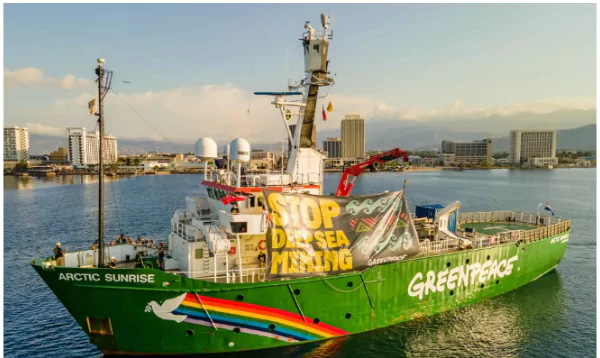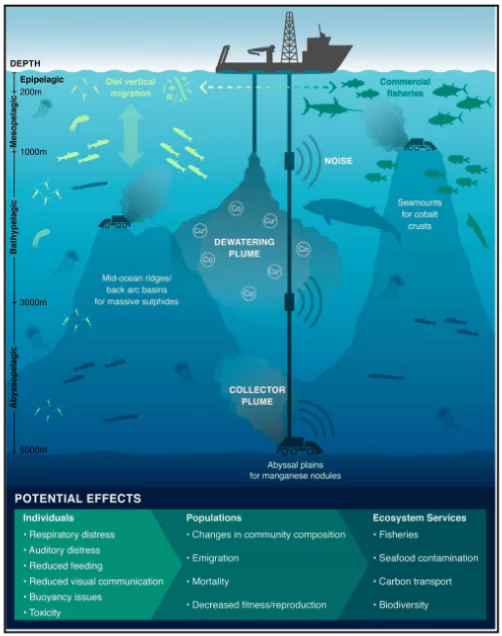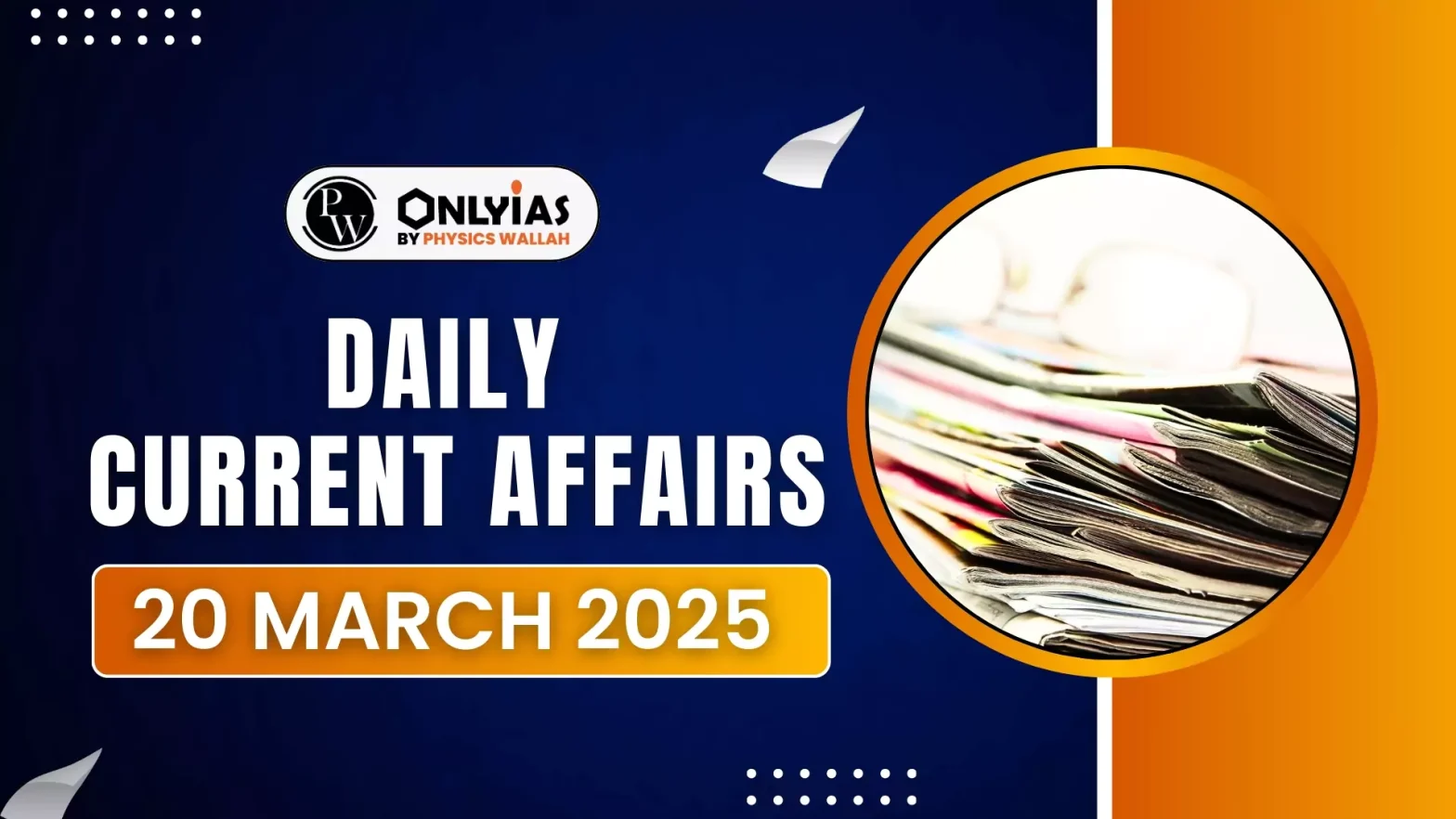Around 170 countries and the European Union gathered in Jamaica on March 17, 2025, for a two-week-long discussion on deep-sea mining.

- The meeting is part of the 30th Session of the International Seabed Authority (ISA) and comes amid increasing pressure from industries.
About International Seabed Authority (ISA)
- ISA is an autonomous international organization.
- Establishment & Legal Basis: Formed under the 1982 UNCLOS and the 1994 Agreement, ISA regulates seabed mineral activities for the benefit of humanity.
- Mandate: Oversees deep-sea mining while ensuring marine environmental protection.
- Headquarters: Kingston, Jamaica; became operational in June 1996.
- Responsible for:
- UNCLOS refers to The United Nations Convention on the Law of the Sea.
- It is an international treaty that governs all aspects of the world’s oceans, including navigation, resource management, and environmental protection.
- Adopted in 1982, it provides a legal framework for maritime activities and ensures peaceful and equitable use of ocean resources.
|
-
- Developing mining regulations for deep-sea mining. Ensuring protection of the marine environment from harmful mining activities. Jurisdiction: Governs seabed below 200m depth, covering half of the world’s oceans.
- Funding & Governance: Funded by UNCLOS members & contractors, operates with an Assembly, Council, and Secretariat.
What is Deep-Sea Mining?
- It involves extracting minerals like copper, nickel, cobalt, and rare earth elements from the ocean floor at depths greater than 200 meters.
- Mining companies argue that deep-sea minerals are needed to support the global energy transition.
- Current Status of Deep-Sea Mining Contracts
- Since 2001, ISA has granted 30 exploration contracts.
- As of January 24, 2025:
- India holds two exploration contracts in the Indian Ocean and applied for two more in 2024.
- Several European nations have contracts with ISA.
- Norway plans to mine minerals in its exclusive economic zone.
 Significance of the Deep Seabed
Significance of the Deep Seabed-
- Geographical Importance
- Rich in Minerals: Contains valuable resources like polymetallic nodules, cobalt-rich crusts, and seafloor massive sulfides, mainly in the Clarion-Clipperton Zone (CCZ), hydrothermal vents, and seamounts.
- Economic & Strategic Value: Essential for industries relying on metals like manganese, nickel, and cobalt, crucial for electric vehicles and renewable energy technologies.
- Environmental Risks of Deep-Sea Mining
- Habitat Destruction: Mining can permanently damage fragile ecosystems like hydrothermal vents and seamounts.
- Sediment Plumes: Mining activities stir up sediments, suffocating marine life and spreading toxins.
- Biodiversity Loss: Many species may face irreversible decline, disrupting ecosystems and their functions.
- Ecological Sensitivity
- Unique Ecosystems: Home to rare marine species adapted to extreme conditions, including hydrothermal vents and abyssal plains.
- Highly Vulnerable: Recovery from disturbances is extremely slow, risking long-term ecological damage.
What is Mining Code?
- The “mining code” refers to a set of rules, regulations, and procedures established by the International Seabed Authority (ISA)
- Objective: aims to govern the exploration and exploitation of mineral resources in the deep seabed, which lies beyond national jurisdictions.
- Purpose:
- Resource Development: Supports sustainable mining of minerals like cobalt, nickel, and manganese for key technologies.
- Environmental Protection: Safeguards marine ecosystems from mining-related harm.
- Challenges in Finalizing Mining Regulations
- A mining code is necessary to ensure environmentally safe mining, but over 2,000 points in the draft are still under debate.
- Key concerns include:
- Defining acceptable levels of environmental harm.
- Setting monitoring and enforcement mechanisms.
- Establishing insurance and liability requirements.
![]() 20 Mar 2025
20 Mar 2025


 Significance of the Deep Seabed
Significance of the Deep Seabed